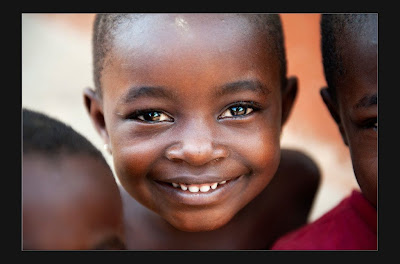
This week GHEI staff took the opportunity to withdraw from our work in Humjibre and gather together at a guesthouse in the neighbouring town of Wiowso for our annual retreat. A small hotel resting in the hills on the edge of the tropical rainforest, the Queen Elizabeth Guesthouse served as a quiet sanctuary for our purposes. We commuted to the hotel from Humjibre each day in the early morning, admiring the stunning sunrise over hills draped in thick mists along the way.

The annual retreat is a time for GHEI to reflect upon our work, discussing our achievements, our shortcomings, and our aspirations for the future. We trim and discard elements of our programming that haven’t met our expectations, while using each success as a blueprint to be applied to other projects and expand our overall impact.
One exercise, simply entitled “The Development Game,” stood out as an apt metaphor for our work in general. Whether you have studied international development, worked or volunteered in a development context, or are interested in the process of nation building in general, this exercise offers food for thought for the development enthusiast.
For GHEI staff this was a thought-provoking exercise that illustrated our differing opinions and perceptions on development. It also showed that each individual has his or her own priorities and values in approaching development work.
The following is a list of statements regarding development work. The objective is to put the statements in order as you see fit, answering the question, "What steps have to be taken for development work to be successful?" Why not try this out for yourself, either on your own or with a partner?
“Development results from a growing economy and the wealth and jobs that this produces."
“Development is about looking after the environment and protecting it for the future.”
“Development is about everyone having washing machines, cars, TVs, etc.”
“Development is about making sure that absolute poverty and hunger are eliminated.”
“Development is people having higher wages and more spending power.”
“Development is about having modern transport and communications, such as motorways and computer technology.”
“Development means everyone has access to education, health care and their basic needs are met.”
“Development means being able to live in peace.”
“Development means people are not afraid to speak out and can have a say in their own future.”
“Development is about power of all sorts being shared equally amongst people.”
If you did this exercise with a friend, compare your results. What was the logic behind the order you chose? What does this order say about your values? There is no one correct answer, and hopefully you discovered that prioritizing certain statements set the direction for the placement of others.
 |
| Photograph by Mandy McConaha |
We strive to equip the individuals in our communities with the resources, including a healthy mind and body, needed to help their communities flourish. Empowering local individuals cultivates the strong leadership needed to lead these communities out of poverty.


No comments:
Post a Comment